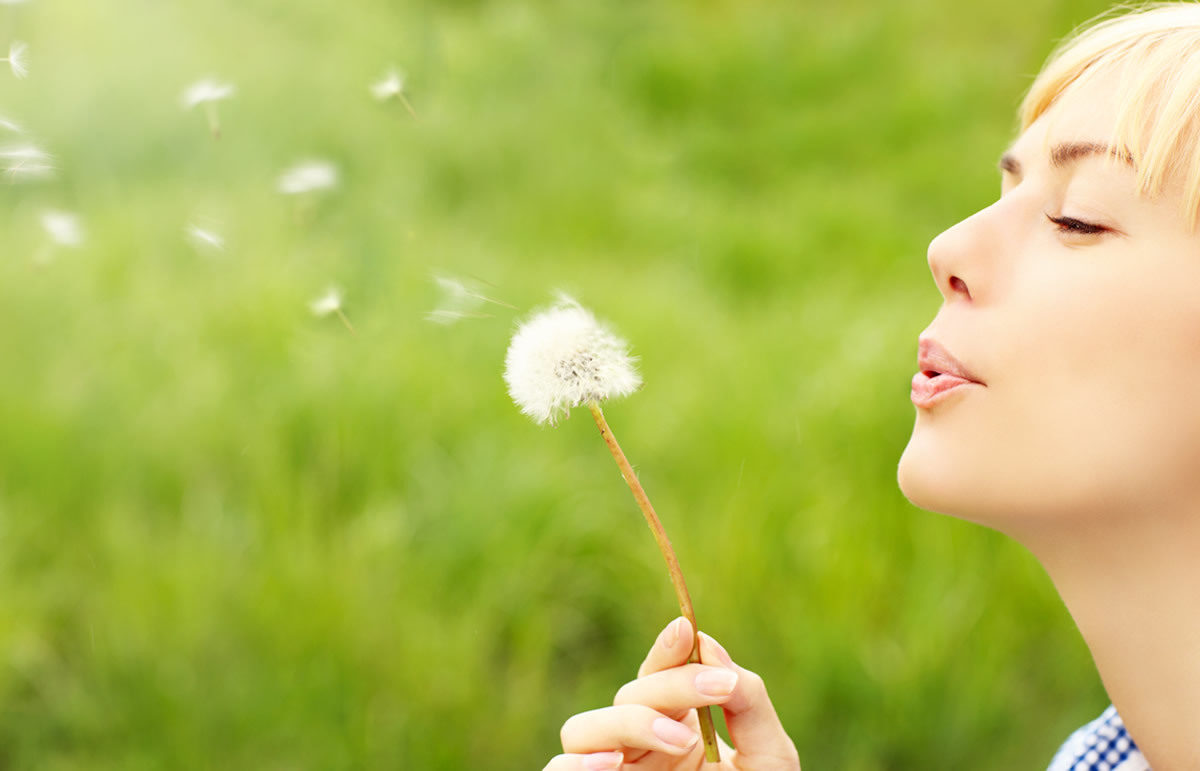It happens every year. The birds migrate back from the south, the leaves turn green, the flowers bloom, and a light dust of yellow blankets your Long Island car, home, porch - basically everything in sight. While the season ushers in immense beauty and those just-right temperatures, it never fails to produce those small golden grains of irritation known as pollen. Although most people welcome the warmer temperatures as an excuse to visit the beach or encourage the kids to play outdoors, many others fall prey to the congestion, itchy eyes, stuffy nose and sneezing caused by rhinitis. Better known as hay fever, allergic rhinitis results when the immune system reacts after allergens are inhaled. While seasonal changes are unavoidable, there are a few ways to tackle your allergies with simple items found in the average home.
Saline Spray
While decongestant nasal sprays should only be used as directed by a physician, saline sprays are a quick and effective way of defeating a stuffy nose. The spray contracts blood vessels in the nose, reducing swelling and diluting mucus. Nasal sprays are also proactive since they cleanse allergens and germs from the nasal passages before swelling or infection results. Most saline sprays are inexpensive and some brands are safe enough to use with infants and small children.
Honey
Although there is no scientific proof, many people believe that the daily consumption of small amounts of locally grown honey causes immunity against pollen. The theory is based on the premise that since the pollen is transferred from flowers to honey, gradually introducing local honey to your immune system will diminish the allergic effects of pollen.
Living on Long Island, there are a variety of spots to find locally grown honey.The natural sweetener is full of antioxidants and is an ideal substitute for sugar.
Eucalyptus Oil
Widely used as an anti-inflammatory, eucalyptus oil provides a cooling sensation as it is inhaled to provide relief against seasonal allergies. The essential oil has also been found to provide antibacterial properties.
Inhaling the vapors, which are similar to menthol, opens the sinus and nasal passageways while providing comfortable breathing. Since the oil may be lethal if used improperly, it is important to avoid contact with skin or ingestion. Common uses of the oil through inhalation include aromatherapy diffusers or adding a few drops to a pot of steaming water.
Foods
Found in many fruits and vegetables, vitamin C reduces the level of histamines in the bloodstream by nearly 40%. Fewer histamines mean fewer allergy symptoms and easier breathing - a good reason to take your mom's advice and "eat your veggies."
Many fruits contain beta-carotene and provide a natural boost to respiratory tract health. Tropical fruits, including mango and papaya, or grapes and berries are among the fruits that reduce the inflammation linked to seasonal allergies.
For those who are not fond of fruits and vegetables, no need to fret. Salmon, sardines, tuna, and anchovies are among the types of fish that combat inflammation and diminish the effects of allergies.
Spices
While their effects are only temporary, many spices act as natural decongestants and may clear your nasal passages. Wasabi, ginger, chili peppers, and garlic are all homeopathic alternatives to over-the-counter antihistamines and decongestants.
Take a Shower
Steam from a hot shower, or even a bath, is helpful to clear sinuses and ease a nagging headache. While the relief might be short-term, bathing rids your body of many allergens that are picked up while playing, working, or gardening outdoors. It also reduces the risk of spreading those allergens to furniture or other areas of your home where they may linger to wreak more havoc on your immune system later.
Although pollen and seasonal allergies are inevitable reminders that spring has arrived to the Long Island area, many of the natural home remedies discussed are often found in the kitchen cupboards or medicine cabinets of most households. In addition, using homeopathic remedies is money-saving alternative to over-the-counter medications.


